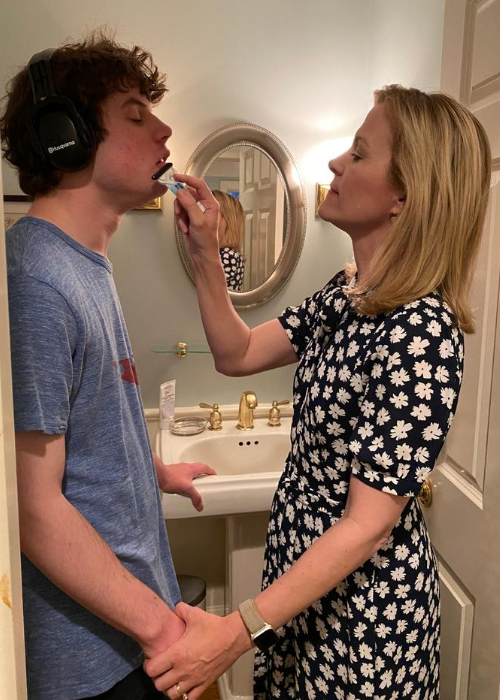How Caregivers Can Adapt to the New Normal
 StatePoint) The COVID-19 pandemic has changed life for the 44 million caregivers in the U.S. and the people they care for, with social distancing creating new routines, concerns, and challenges.
StatePoint) The COVID-19 pandemic has changed life for the 44 million caregivers in the U.S. and the people they care for, with social distancing creating new routines, concerns, and challenges.
To help caregivers adapt to the new normal, Judith Ursitti, who is raising a son with autism, shares these tips and insights:
• Social distancing presents new challenges: The requirements around social distancing may have eliminated access to some of the activities your loved one enjoys in the community, and in some cases, getting your loved one to accept this can be difficult. However, it’s important to maintain patience and empathy by preparing for this challenge.
“Not seeing the familiar faces of friends, teachers and therapists has dramatically increased Jack’s level of anxiety. That leads to additional anxiety for the rest of the family. It’s hard,” says Ursitti.
From art projects to puzzles to bird watching, try introducing alternative activities that your loved one may enjoy and can participate in safely.
• New tools can help: While it may have been a while since anyone in your family has gotten a barbershop haircut, it’s important to stay on top of regular hygiene, even if you aren’t leaving the house. Be sure that showers, shaving, and toothbrushing don’t fall by the wayside. Not only do these routines provide a sense of familiarity, but they are also important for your loved one’s overall wellness, and innovative tools are making such tasks easier for caregivers.
“A quick, efficient way for me to help Jack shave is with the Gillette TREO, which is conveniently designed for caregiver use,” says Ursitti.
There have been over 4,000 razors designed for shaving oneself. As the first razor designed to shave someone else, Gillette TREO was created specifically for caregivers and their loved ones. Its award-winning, inclusive design helps protect gentle skin, offers better control and removes the need for water, so caregivers can confidently and safely shave their loved ones anywhere, even away from the sink. To learn more, visit Gillette.com/TREO.
• Take care of yourself: It can be easy to forget that there is a light at the end of the tunnel.
“Try to remind yourself, especially when the anxiety is high or the situation is challenging, that it too shall pass,” says Ursitti. “Take a deep breath and encourage your loved one to do the same. And when all else fails, eat some ice cream.”
Reaching out to friends and family is especially important right now in combatting feelings of isolation and for support. Thanks to video chatting tools, it’s easier than ever to stay connected.
Caregiving is never easy and these unusual times can make things even more difficult; however, new tools can offer you additional support.
PHOTO SOURCE: Courtesy of Autism Speaks and Gillette






